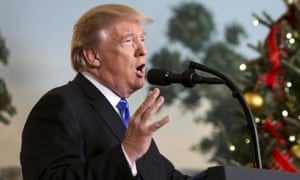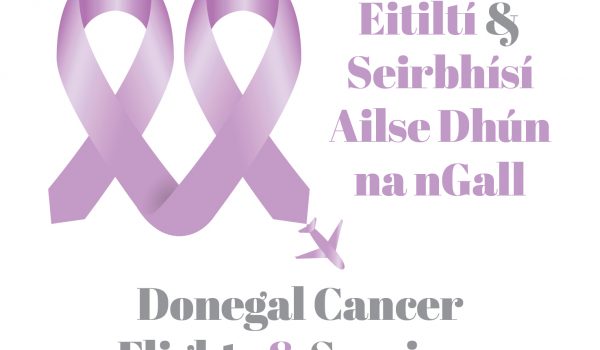
Magazine celebrates anti-harassment movement by naming ‘The Silence Breakers’ on its cover after millions shared stories of sexual assault
“The Silence Breakers”, the vanguard of a global movement by millions of women to share their stories of sexual harassment and abuse, was revealed on Wednesday to be Time magazine’s Person of the Year.
The announcement comes as many industries and power centers around the world are still reeling from an unprecedented reckoning with sexual harassment and abuse that came in the wake of the revelations about film mogul Harvey Weinstein in October.
Even as the image of Time’s cover spread across the internet, Weinstein faced a fresh lawsuit on Wednesday from six women and, separately, a group of female US legislators publicly demanded Senator Al Franken resign over accusations that he groped constituents and co-workers.
Time’s Person of the Year cover features Susan Fowler, a former Uber employee whose blog post about Silicon Valley sexism led to thedeparture of CEO Travis Kalanick; “Isabel Pascual”, a pseudonymous agricultural worker who has been stalked and harassed by her boss; and Adama Iwu, a corporate lobbyist who inspired dozens of women to expose sexual harassment in California’s state capitol.
There was also Ashley Judd, who was among the first women to accuse Weinstein of sexual harassment and Taylor Swift, who was celebrated for her testimony against a former DJ who she accused of groping. Just out of frame – only her arm is visible – is a hospital worker who wished to represent those who can’t speak out.
Among the many women featured inside Time’s story is Tarana Burke, the #MeToo movement’s creator. The women’s rights activist coined the term while working with sexual violence survivors more than a decade ago, although she has not always received full recognition. “This is just the start. I’ve been saying from the beginning it’s not just a moment, it’s a movement,” Burke said on Wednesday. “Now the work really begins.”
The Person of the Year announcement came on a US television show that has itself been rocked by controversy NBC’s Today show, which fired Matt Lauer over sexual assault and harassment claims just one week earlier. Today host Savannah Guthrie acknowledged that this year’s winner hits “close to home” and mentioned Lauer by name.
Time said it was conveying the award not just to the women who sparked the #MeToo movement on social media but to the uncountable women and men whose private actions and public bravery drove the culture to its current tipping point. “It doesn’t have a leader, or a single, unifying tenet,” reads Time’s cover story. “The women and men who have broken their silence span all races, all income classes, all occupations and virtually all corners of the globe. They might labor in California fields, or behind the front desk at New York City’s regal Plaza Hotel, or in the European parliament. They’re part of a movement that has no formal name. But now they have a voice.”
To many, it was just as significant who failed to “win” the title: Donald Trump, who had claimed to have taken a “pass” on an interview and “major photo shoot” for Time last month because he was only “probably” going to be named its person of the year. Time had said Trump’s claim was “incorrect”.

The final days of Trump’s presidential candidacy were dogged by more than a dozen women who accused him of sexual assault. (Trump has called them politically motivated “liars”.) On Wednesday, Time said Trump was a runner-up for Person of the Year.
His ascent to the highest office despite those accusations has doubtless powered the #MeToo movement and its close cousins, like the Women’s March on Washington DC to protest his presidency. “I have real doubts about whether we’d be going through this if Hillary Clinton had won, because I think that President Trump’s election in many ways was a setback for women,” said Megyn Kelly, the Fox News host who was a favorite target of Trump’s misogyny during the election. “The overall message to us was that we don’t really matter.”
The Time shortlist also included the Chinese president, Xi Jinping, NFL player and activist Colin Kaepernick, Crown Prince Mohammad bin Salman of Saudi Arabia, and Wonder Woman director Patty Jenkins.
The hashtag took off in October after the actor Alyssa Milano encouraged women who had experienced sexual mistreatment to say so under the banner of “me too”. In the next 48 hours, nearly a million people used the #MeToo hashtag. Milano, who appeared on Today with Burke, said: “As women, we have to support each other and stand together and say, ‘That’s it. We’re done. No more.’ It’s vital to me that we really set in some actionable things that we can do to continue this momentum.”
Some questioned why Time didn’t feature Burke on its cover, her missing face another potential symbol of how the power of #MeToo has accrued to the privileged and powerful.
While revelations and accusations about misconduct have led to dozens of high-profile men losing their positions, cultural cachet, and power, activists say the real test of the movement is whether it can produce a similar reckoning on behalf of the millions of victims with little name recognition or power.
A Quinnipiac University poll also released on Wednesday found nearly half of US women said they had been sexually assaulted. Among the 1,747 American adults surveyed, 17% of men and 47% of women said they had been abused, according to the poll, which had a margin of error of 2.8% points.
The German chancellor, Angela Merkel, Time’s 2015 Person of the Year, said through a spokesman that this year’s winners should be thanked for “having the courage to break the silence on sexual assaults and for the worldwide discussion that they have launched”.
Associated Press and Reuters contributed to this report
theguardian.com





